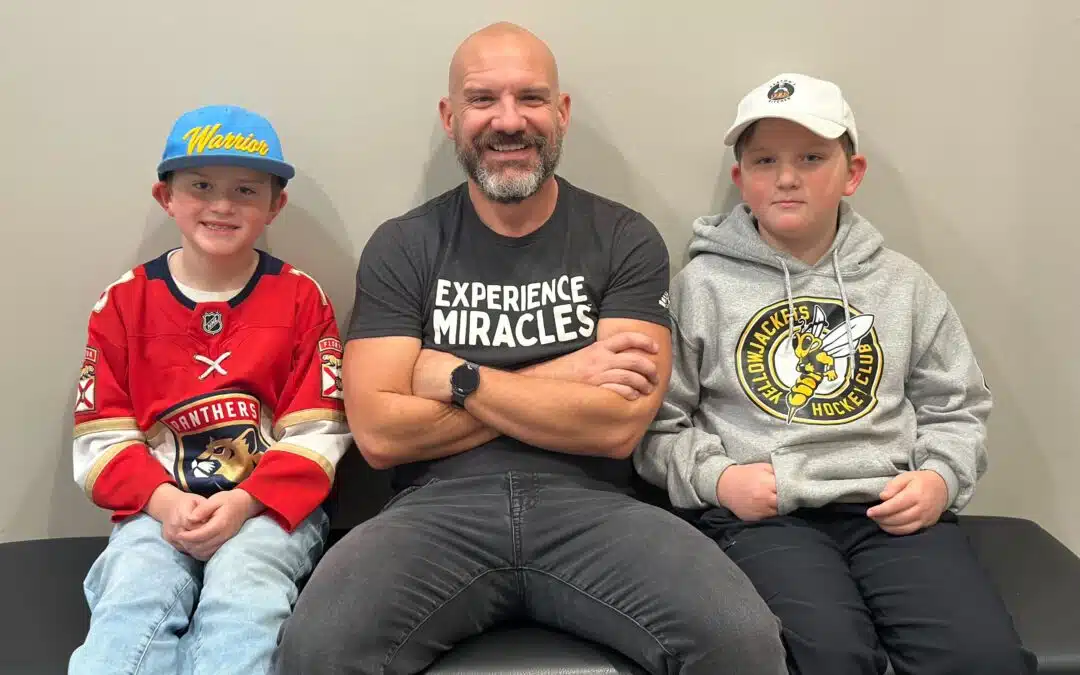At first glance, Avery was a successful and even exceptional 5th-grade student. In the classroom, she consistently scored high marks on tests and assignments while contributing to class discussions. She is extremely active and talented in both cheerleading and dance, and her coaches are always impressed by her drive, focus, and determination to succeed. Her teachers and coaches praise her level of hard work and dedication, and Avery thrives for some time in these conditions. But at home, her parents see something completely different when asking her to complete her homework, eat dinner, and get to sleep.
Avery complains of headaches and insomnia, and her appetite becomes irregular. She has trouble concentrating when doing her homework, and her attitude declines — often becoming snippy or rude to her parents and brother. She is still the same talented, unique, and special young person who succeeds during the day, but she seems stressed and increasingly unhappy and anxious at home.
What’s happened in Avery’s life? It’s a difficult question that quickly leads to further tricky questions: Why does the same drive and intensity that once helped Avery succeed now push her beyond her comfort levels? How much of that drive is too much, and at what point does it start to hamper her day-to-day life? For Avery (and many of her peers), the answer may lie in recognizing the signs of high functioning anxiety.
What Is High Functioning Anxiety?
For the time being, high functioning anxiety remains something of an informal term within the mental-health community. In fact, the Diagnostic and Statistical Manual of Mental Disorders (or “DSM-5”) — the professional codex of mental health diagnosis — does not currently list high functioning anxiety as an official anxiety disorder. Accordingly, there isn’t much corresponding research on this specific condition. Nevertheless, there are enough young people and adults with experiences similar to Avery’s to warrant a discussion of the issue; sufferers who report that the same intensity and passion that once fueled them now seems to cripple them.
The signs of high functioning anxiety may be similar from one patient to the next. The term “high functioning anxiety” refers to an individual who experiences anxiety while still managing, succeeding, and even excelling at daily tasks. The child or teen may have struggled with anxiety for most of their life while nevertheless performing well at school, in sports, and in other activities. That is why it’s so hard for parents of children with high functioning anxiety, because often, the child “hides” it well at school and then struggles in the evenings.
Sufferers of high functioning anxiety may be successful in their relationships and, by all accounts, appear to be “doing great.” In actuality, though, the individual is plagued by their anxiety, even though their successes may (partly) stem from it.
Ultimately, high functioning anxiety may be caused by dysautonomia, a condition in which the autonomic nervous system is in a state of dysfunction. In many cases, dysautonomia can be measured and tested to assist in developing a personalized treatment plan. In many cases, chiropractic care has been shown to improve these imbalances in the autonomic nervous system.
Let’s look at a short synopsis of high functioning anxiety:
- High functioning anxiety involves individuals who may be high achievers in daily responsibilities and expectations despite their anxiety (or possibly due to it).
- When anxiety becomes too much for these individuals to handle, it may lead to adverse responses and negatively affect their day-to-day quality of life in a big way.
- The struggles that come from high functioning anxiety may be lessened by decreasing stress and tension on the nervous system.
What Are Signs of High Functioning Anxiety?
As mentioned above, those that suffer from high functioning anxiety may appear to be successful in their day-to-day lives and activities. Because of this, it can be challenging to recognize or even codify the symptoms of high functioning anxiety. Yet some commonalities tend to exist among the symptoms — both those of the positive variety (indicating some measure of outward “success”) and the negative variety (indicating detrimental aspects). The criteria tend to fall along the following lines:
“Positive” Characteristics of High Functioning Anxiety
- Organization
One of the more common aspects of high functioning anxiety seems to be a predilection toward organization and neatness. Attention to detail and scheduling often indicate success at school, work, and other responsibilities. High functioning anxiety can, in many cases, actually promote these characteristics. - High Personal Standards
Do you or your child feel compelled to be perfect? Is this a blessing or curse in everyday life? Can it be turned on and off, or does it tend to adversely affect daily tasks? Those dealing with high functioning anxiety might face these or similar questions, because their anxiety may contribute to their success. - Control
It can be debated whether or not control would constitute a positive or negative characteristic, as it can be a double-edged sword (like high functioning anxiety itself) in terms of social interaction and mental health. For the sake of this discussion, let’s assume that exhibiting some measure of control over daily stressors can be a powerful reinforcer for those living with high functioning anxiety.
“Negative” Characteristics of High Functioning Anxiety
- The symptoms and signs related to the negative aspects of high functioning anxiety may be too many to explore here fully. However, a non-comprehensive list is provided here:
- Increased heart rate or blood pressure
- Difficulty falling asleep and staying asleep
- Headaches
- Panic attacks
- Changes in appetite
- Nervous compulsive behaviors such as nail biting or bouncing legs
- Stomach aches and constipation
- Avoidant behaviors and procrastination
- A tendency toward addiction and substance abuse
- A general compulsion towards pleasing others and difficulty saying “no”
Again, these symptoms and outward signs of high functioning anxiety do not constitute a complete or exhaustive list. The detriments of high functioning anxiety may show outwardly in various ways, including muscle tension, irritability, and escapism.
Another possible link to high functioning anxiety is a common childhood challenge called Sensory Integration Disorder.
What Are the Causes of High Functioning Anxiety in Children?
While the ultimate cause (or causes) of high functioning anxiety can be difficult to pinpoint, mental health professionals tend to agree on a few common factors. For one, family history and genetic factors seem to play a role in an individual’s inclination for high functioning anxiety. High-pressure life events or a stressful environment can also contribute, as the pressure to succeed is augmented by the need to thrive and survive.
Yet another set of factors related to neurological health has gained footing in determining the causes of high functioning anxiety. These include subluxation, dysautonomia, and complications with the vagus nerve.
Many of our PX Docs also find a few common links in the case history of children with high functioning anxiety. Things such as birth trauma and even colic show up in the very early history, and then constipation and frequent use of antibiotics and inhalers do as well. This again suggests a strong link between anxiety and things like the brainstem, vagus nerve, nervous system, adrenal glands, and the gut.
We frequently observe these patients as “wound up and worn out” simultaneously. The sympathetic dominance and drive help them succeed, but the exhaustion is what leads to emotional dysregulation and other struggles.
Drug-Free Care Options for High Functioning Anxiety?
The traditional approach to treating high functioning anxiety is similar to the methods of addressing anxiety in its other forms. Usually, this means therapy, medication, or some combination of the two. But today, most parents agree that medication should be the last resort due to the long list of side effects, so they first seek out many of the various forms of help discussed below.
Therapy
Trusted forms of psychotherapy such as cognitive-behavioral therapy (or “CBT”), eye movement desensitization and reprocessing therapy (or “EMDR”), and trauma-informed therapy have all been shown to have marked effects on treating those who suffer from high functioning anxiety.
Neurologically Focused Chiropractic Care
A new and quickly emerging option for parents is neurologically focused chiropractic care, which seeks to get right to the root causes of subluxation and dysautonomia. Chiropractic adjustments seek to relieve pressure caused by the excessive sympathetic response, or “fight or flight” issues.
For children dealing with high functioning anxiety, chiropractic adjustments can encourage vagal nerve tone and parasympathetic response, promoting improved digestion, rest, and emotional regulation. The discomfort and distress the body feels when dealing with nervous system complications cannot be overlooked, as these factors may contribute to, or ultimately lead to, the challenges of high functioning anxiety.
Luckily, several options, including pediatric chiropractic options, exist to help lessen this discomfort and provide families with care options beyond psychotherapy and medication.
MANAGING HIGH-FUNCTIONING ANXIETY
In the quiet orchestra of the mind, high-functioning anxiety can be a persistent, unsettling undertone, often masked by a veneer of success and productivity. It’s the inner tremble beneath a steady hand, the racing thoughts behind calm eyes. Managing this form of anxiety requires a gentle, yet deliberate, approach. Start by setting the tempo of your day with mindful breathing—each inhale a wave of calm, each exhale a release of tension. Anchor yourself in the present with meditation or yoga, allowing the symphony of your thoughts to slow to a peaceful adagio. Prioritize rest, for sleep is the silent healer, turning dissonance into harmony. Embrace a diet that nourishes both body and mind, and consider journaling to give voice to the inner dialogue that anxiety often silences. Seek harmony in connection, too; conversations with trusted friends or professionals can be the counterpoint to anxiety’s isolating melody. Remember, managing high-functioning anxiety isn’t about silencing this part of your life’s composition; it’s about integrating it into a more beautiful, complex whole. It’s about conducting a life where anxiety informs but does not overwhelm, creating a masterpiece of balanced well-being.
PX Docs Offer Hope + Help
Let’s return to Avery, our 5th-grade student who was both high achieving, and dealing with high functioning anxiety and sensory integration disorder. After trying a few other care options first, her parents attended a Perfect Storm Workshop from leading pediatric chiropractor Dr. Tony Ebel.
During that talk, Avery’s parents finally had answers and a simple, scientific explanation for why their incredible daughter had begun to struggle so much at home. They left that workshop full of hope and excitement after many months of struggle and despair, and they could not wait for their consultation and first appointment!
And finally, Avery’s parents knew they had found the perfect provider and action plan to help their daughter when they saw her EMG Scans, pictured below:
Avery’s Initial Scan:
Avery’s Progress Scan 90 Days Later:
What these INSiGHT Scans clearly indicated for Avery starting out, is that her sympathetic nervous system was “stuck on” and leaving her in a constant state of tension and irritability. The area of red tension on her initial scan especially correlates with subluxation and dysfunction that would affect her adrenal glands, which are known to be a significant player in sensory and anxiety conditions.
Then, her progress scans 90 days later show exactly what her parents experienced with her day-to-day health and well-being! Within just a few months, Avery could calm down, relax, and control her emotions much better at home, and she was falling asleep far easier and waking up rested the next morning.
The changes were incredible, and they allowed Avery to still be the driven, highly functional child God made her to be, but without all the stress, tension, and anxiety boiling over at home anymore.
If you think your child may be struggling with high functioning anxiety or sensory challenges, consult with a PX Doctor today by visiting our directory right away!
The PX Docs Network is full of doctors who care enough to truly listen, dive deep to find the root cause, and create a customized action plan with you that helps your child heal without drugs!





